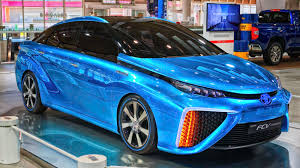John Ndlovu
Information and Technology Reporter
Mother nature’s cry over pollution emitted by gasoline or petrol cars been answered through hydrogen fueled vehicles.
Drivers with financial muscle can calmly invest on 75% of the Universe’s mass.
This mass is known as Hydrogen which is one of the atmospheric cleanest components which is recommended by most countries worldwide for vehicle fuelling in a bid to curb climate change and depletion of the ozone layer which causes fluctuating weather patterns.
One would wonder how hydrogen will function in cars.
Hydrogen cars which are also known as Fuel Cell Electric Vehicles (FCEVs) are vehicles that use hydrogen as a clean and efficient alternative to conventional internal combustion engine vehicles, they emit only water vapour and warm air and can be fueled in under 4 minutes with a range of over 300 miles/482,803 kilometers.
Most African countries like Zimbabwe are still at an infancy in terms of adopting use of hydrogen cars due to sporadic economic conditions.
There have been some bit of advancements in the field of renewable energy in Zimbabwe for example, Zonful Energy company has been providing solar energy solutions to the rural folks in the country. While South Africa and Morocco have already kick-started exploration of hydrogen fuel cell vehicles in a bid to meet global standards of a clean environment.
Zim GBC News spoke to the general populace on the issue.
Thabang Moyo who is a technology expert told this reporter that for Zimbabwe to adopt the use of hydrogen powered cars would be a long walk in the park due to deepening economic conditions which are rife as they would be a need to establish hydrogen fuel stations and more hydrogen batteries something which would be very difficult for the Southern African nation.
“As you know here at home we always depend on other nations plus we are always lagging behind so it will be very difficult for us to adopt use of hydrogen powered cars as a lot of investment would be needed to establish filling stations and even creating hydrogen batteries.”Moyo said
Hydrogen fuel cells are more energy-efficient than internal combustion engines, making them a cleaner and more environmentally friendly alternative as they emit water vapour as a by-product. However the production process of the HO2 fuel emits Carbon dioxide when it is extracted from natural gas.
Japan produces the most number of hydrogen cars due to it’s prowess of producing cars worldwide as Toyota and Honda are producing a handful of such cars. Other countries such as the United States of America and South Korea have also been producing hydrogen fueled cars. The European Union is said to have set ambitious targets for the development of hydrogen fuel cell vehicles, aiming to have at least 40 000 hydrogen fuel cell cars on it’s roads by 2025.
The emergence of hydrogen cars dates back to 1800s when the first hydrogen fueled car was an internal combustion fuel which was invented by Francois Isaac de Rivaz in 1807, around 1860 Etienne Leinor invented the Hippomobile which used an electrolyzed hydrogen engine. Toyota and Hyundai have made enormous investments in hydrogen car development in recent years


